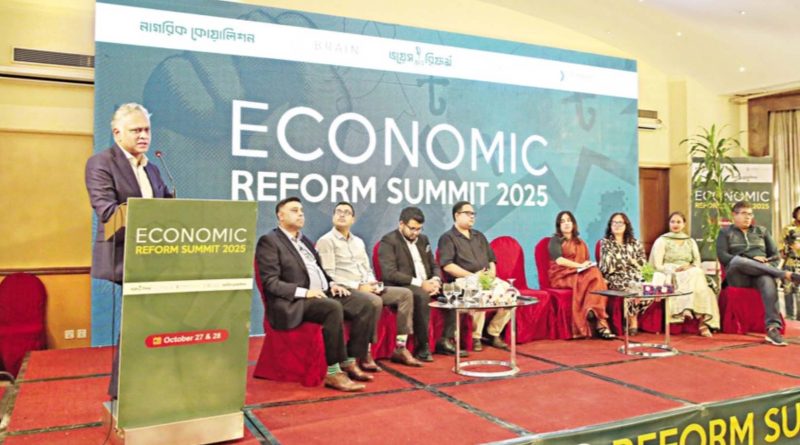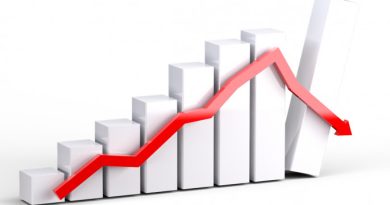Bangladesh’s economic future hinges on how effectively it can diversify and modernize its export base to navigate a fast-changing global trade environment, experts said at the Economic Reform Summit 2025 held in Dhaka on Monday.
Dr Masrur Reaz, Chairman and CEO of Policy Exchange Bangladesh, warned that the country could fall into a middle-income trap if it fails to expand beyond its dependence on ready-made garments (RMG). Delivering a keynote paper titled “Leveraging the Power of Global Markets: Why Export Competitiveness and Diversification Matter for Bangladesh,” he said exports have grown tenfold in four decades, but over 81% now come from the RMG sector, leaving the economy highly exposed to external shocks.
“Such a narrow export structure poses serious risks, especially as preferential trade benefits will fade after LDC graduation,” he cautioned.
Dr Reaz said after graduation, Bangladeshi apparel could face tariffs of 11.6% in the EU, 16.2% in Canada, and over 22% in India, potentially shrinking overall exports by up to 14%.
According to Policy Exchange data, Bangladesh’s participation in global manufacturing value chains remains limited to 22–26%, far below Vietnam’s 60%. “We lag in automation and technology adoption, which raises production costs and limits value addition,” he noted.
He also highlighted emerging global standards on environmental and human rights compliance, warning that “failure to align with these will cost Bangladesh its export markets.”
Dr Reaz identified six sectors with strong potential for diversification—agriculture, ICT, pharmaceuticals, leather, light engineering, and plastics-semiconductors—which could add USD 35 billion to export earnings by 2030.
He called for urgent reforms to cut logistics costs by 25%, which he said could boost exports by 20%, alongside investments in infrastructure, trade facilitation, and automation.
Private sector leaders back reforms
Industry leaders echoed his call for targeted reforms. Syed Nasim Manzur, Managing Director of Apex Footwear Ltd, said the government should set clear export targets for a few priority sectors instead of spreading resources too thin. He also urged tax reforms, arguing that turnover-based taxes unfairly burden businesses.
Shams Mahmud, Managing Director of Shasha Denims, called for policy stability, energy security, and investment in man-made fibre production to help the textile sector compete globally. He also suggested modernizing the textile education curriculum to meet industry needs.
Startup entrepreneur Rasha Khan, Founder of Escape Bags, said young companies struggle with high import duties, compliance costs, and certification fees, and called for policy support to help startups enter global markets.
Other speakers included Sadaf Saaz, CEO of EskeGen Ltd, and Mir Shahrukh Islam, CEO of Bondstein.
Cashless economy still faces major hurdles
In an earlier session on “Cashless Economy & Financial Inclusion,” experts said Bangladesh’s progress toward a fully digital payment ecosystem remains slow due to low financial literacy, poor interoperability, and high transaction costs.
Md Arfan Ali, Chairman of Zaytoon Business Solutions and former Managing Director of Bank Asia, said the country spends Tk 200 billion annually just to print and manage physical cash. “A cashless economy is no longer a luxury—it’s a fiscal necessity,” he said.
He warned that low digital literacy and uneven internet access in rural areas are eroding public trust in digital systems. Weak interoperability among platforms also discourages users from shifting to digital payments.
TallyPay CEO Shahadat Khan and Bangladesh Bank official Mohammad Rashed highlighted ongoing initiatives, including QR-based payments and P2P transfers, noting that 2026 will be a transformative year for the digital payment sector.
The Economic Reform Summit 2025 was jointly organised by Voice for Reform, BRAIN, Innovision Consulting, Fintech Society, and Nagorik Coalition.






